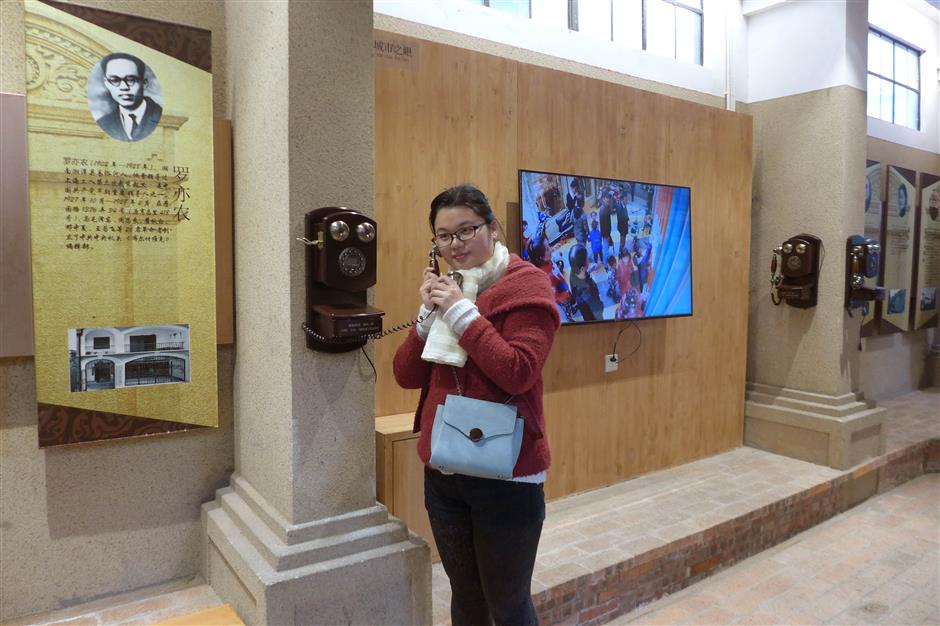Refurbished buildings tell of Yuyuan Road's century-old tales
Some recently renovated buildings along Yuyuan Road have opened to the public, part of an ongoing campaign of "micro refurbishments" of the century-old road that had been home to many rich and famous people.
The road — which dates back to 1911, the final year of the Qing Dynasty (1644-1911) — runs through the districts of Changning and Jing'an. In recent decades, however, the road has increasingly been shortened to its current length of 800 meters.
The Changning District government has been demolishing illegal buildings and establishing databases for each of the more than 100 historic villas on both sides of Yuyuan Road.
It has invited architects and designers to take part in innovative renovations of public areas, shops and various community facilities to modernize the road and enhance its retrospective appeal.
Shanghai's government has listed Yuyuan Road as one of 64 historic streets that can never be widened, so as to preserve their historic appearances. Yuyuan Road is also one of 12 protected historic and cultural zones in the downtown area.

When visitors pick up old-fashioned telephones' receivers, they can listen to the sirens of electric trams and the cries of newspaper sellers that were commonly heard in local communities decades ago.
On 1065 Yuyuan Road, a former residents’ activity center has been turned into a “public living room.” Old-fashioned telephones have been mounted on its walls. When visitors pick up the telephones' receivers, they can listen to the sirens of electric trams and the cries of newspaper sellers that were commonly heard in local communities decades ago.
Visitors can also learn about the celebrities who had lived on Yuyuan Road, and local architectural elements from the past.
For senior residents, they can sit on wooden benches to chat with one another, while young residents can sing or play music on a small stage.
A small library on the second floor features a set of narrow wooden stairs common in old shikumen, or stone-gate, buildings. Visitors who wish to read can open a so-called "laohu chuang" (literally a tiger window in English), a traditional design of shikumen buildings, to watch the scenery of the road.
Near the “public living room,” a small art gallery has been set up on the pedestrian path, where passers-by can view old photos taken on the road through a 3-centimeter-wide opening.
“The designers hope that pedestrians can walk slower to enjoy the special flavor of the road,” said Huang Zhiwei, an official who is responsible for the small refurbishments of the road.
To protect the historic villas along Yuyuan Road, the Jiangsu Road Subdistrict, where the road is located in, is working with China Telecom to establish three-dimensional data for each of the villas to ensure there would be no illegal renovation or structures built.
Yuyuan Road had been home to celebrities such as missile and space scientist Qian Xuesen (1911-2009), writer, translator and scholar Shi Zhecun (1905-2003), translator Fu Lei (1908-1966), and pianist Gu Shengyin (1937-1967).
“I used to hear the piano music played by Gu while doing my homework,” said Hou Wenbin, a resident of Yuyuan Road for more than seven decades. He is presently among the volunteers who patrol the community to target illegal constructions. “Each of the villas has touching stories,” Hou said.
Volunteers, mostly old and long-time residents, also share the history of the historic villas and the road to visitors, according to the subdistrict.















